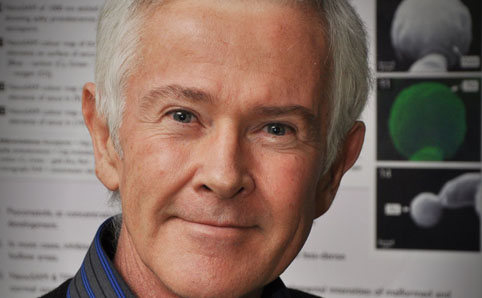 |
| Prof. Lodewyk Kock |
A yeast genus has been named Kockiozyma in honour of Prof. Lodewyk Kock of the Department of Microbial, Biochemical and Food Biotechnology at the University of the Free State for his contributions to yeast systematics.
A genus is a category of classification ranking below a family and above a species and generally consists of a group of species exhibiting similar characteristics.
Prof. Kock says: “This event was a big surprise and honour which is usually only bestowed on scholars at the end of their career.”
The manuscript proposing the new genus name, titled "Kockiozyma gen. nov., for Zygozyma suomiensis: thephylogeny of the Lipomycetaceous yeasts" was accepted for publication on 7 February 2012 by the ISI journal Annals of Microbiology.
This genus is a member of the family called the Lipomycetaceae which is regarded as a primitive group of yeasts. This family is usually studied for their evolutionary status and development.
The scholars that did the research and bestowed the honour are Dr S. Jindamorakot and Dr P. Yukphan from the National Science and Technology Development Agency (NSTDA) in Thailand. The senior author was Prof. Y. Yamada, Professor Emeritus at Shizuoka University at the town of Shizuoka in Japan.